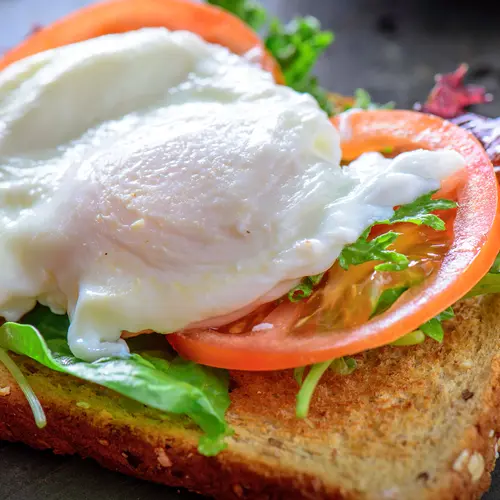Storing your food properly helps you prevent food waste, save money, and avoid foodborne illnesses. There are several common food storage mistakes to avoid.
1. Placing Meat on the Top Fridge Shelf
You might put your meat on the top shelf of your fridge to keep it away from other foods and avoid cross-contamination, but this is the worst place to store meat. Uncooked meat, poultry, and fish contain blood and fluids, often called juices. The juices can drip down into other foods and contaminate your food with harmful bacteria.
Instead, store and thaw your meat on the bottom shelf away from cooked foods and from foods you can eat raw, like fruits and vegetables.
2. Storing Food Uncovered
You’ve probably put an uncovered plate or container in the fridge out of hurry or sheer laziness, but this is a mistake. Open food can be cross-contaminated with uncooked foods like raw meat. Uncovered food also dries out quickly and can absorb any fridge or food odors.
Move food to an airtight container or seal it with plastic wrap before putting it in the fridge. This will keep it fresh and prevent food spoilage. If you’re in a hurry, cover the food with tin foil.
3. Keeping Leftovers Too Long
Leftovers are a great way to make your meals go further, but don’t forget about them. If you haven’t eaten them within three to four days, throw them out. Even if you don't see obvious signs of decay such as mold, the food can still be dangerous to eat. Bacteria will start growing and cause food spoilage, which can make you sick. Remember to refrigerate your leftovers no later than two hours after your meal.
4. Storing Potatoes Next to Apples and Onions
Lots of people store potatoes alongside apples and onions in the pantry, but this is a mistake. Both apples and onions give off ethylene gas, which can cause your potatoes to sprout.
Instead, keep your apples in the crisper or store potatoes in a separate cabinet. Potatoes need to be stored in a dark, cool area to prevent them from spoiling or sprouting.
5. Refrigerating Wet Fruits and Vegetables
It might seem like a time-saving practice to prewash all your fruits and vegetables and throw them in the fridge, but this isn’t a good idea. Any time you introduce moisture, you raise the risk of bacteria growing and causing food to go bad.
Instead, wash your fruits and vegetables right before eating or preparing them. If the produce is dirty, rinse it and make sure it's dry before you put it in the fridge.
6. Using the Wrong Food Storage Containers
It’s easy to store your takeout leftovers in their cardboard or styrofoam containers, but don’t do this. These containers aren’t airtight, which can lead to stale food and weird fridge smells.
In the pantry, most things can be stored in the original box, but any dry food that isn’t in an airtight container might absorb moisture. This can lead to clumpy powders and limp cookies or crackers.
Use food-grade containers that have a tight lid and are made of plastic, glass, or metal. Only use glass containers or regular dishware to microwave food. Heating some plastics in the microwave can cause chemicals to leach into your food.
7. Keeping the Wrong Fridge and Pantry Temperature
Your food storage spaces need to be at the right temperature to protect food quality. Keep your fridge set to 40 degrees Fahrenheit or lower and your pantry between 50 degrees to 75 degrees Fahrenheit.
If possible, choose pantry cabinets away from the stove, oven, and fridge. If your pantry is a closet, make sure it isn't near a water heater or hot water pipes. A pantry that is too warm will cause foods to lose their nutrients, melt, or spoil faster. If your refrigerated items aren't kept cold enough, bacteria are given a chance to multiply.
8. Storing Canned Foods Improperly
While canned foods have a long shelf-life, temperatures over 100 degrees Fahrenheit can cause them to spoil. If you store your cans for too long in direct sunlight or in places warmer than 75 degrees Fahrenheit, the food will lose its nutrients, flavor, and color.
Don't forget to eat your food. Buy only what you can reasonably expect to eat. While you can eat canned food up to three years past the date on the package, it’s best to use it within one year. Rotate your cans when you buy new stock and use the oldest cans first.
Food Storage and Food Safety
Good storage practices can protect the quality and safety of your food. For most people, food is one of their biggest expenses. From food storage containers to the temperature of your fridge and pantry, protect your investment with better food storage practices.

